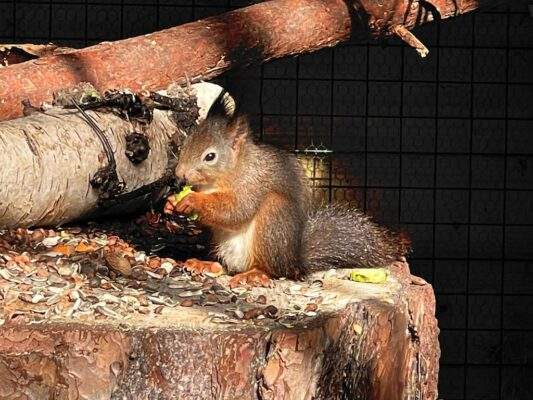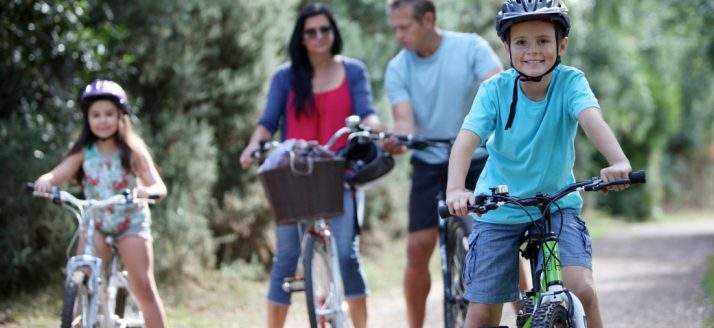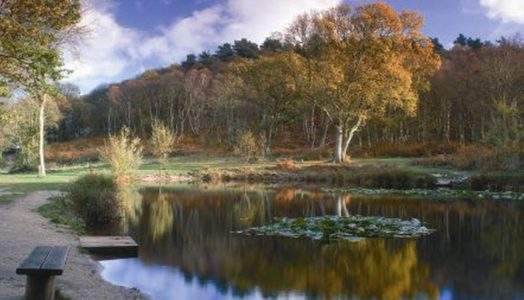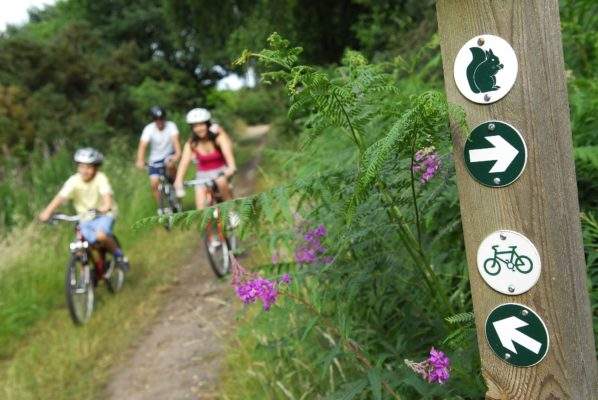Red Squirrels
THE RED SQUIRREL BREEDING PROGRAMME (SCIURUS VULGARIS)

2023
March
We are delighted that our breeding pair produced another four kittens in March. David Martin, Countryside Manager, is currently speaking with various Red Squirrel organisations to find them new homes.
Four of the six kittens from 2022 were relocated to a Red Squirrel project in Cornwall, one went to Pettitts Adventure Park, and one remained with us in the enclosure.
July
David Martin, our Countryside Manager, took four Red Squirrels to their new home at the Wildwood Trust in Kent last week.
Wildwood Trust opened in 1999 as a centre of excellence for the conservation of British wildlife and became a registered charity in 2002. Wildwood is Kent’s best British wildlife park. Home to over 200 native animals, past and present and set in 40 acres of beautiful ancient woodland where visitors can see bears, wolves, bison, deer, owls, foxes, red squirrels, wild boar, lynx, wild horses, badgers and beavers plus many more. In 2015, Wildwood Trust opened an additional park at Escot in Devon.
As one of the leading British animal conservation charities in the UK, Wildwood Trust is dedicated to saving our most threatened wildlife. Wildwood Trust have taken part in many ground-breaking conservation programmes to date, including saving the water vole, using wild horses to help restore Kent’s most precious nature reserves, bringing the extinct European beaver back to Britain and returning the hazel dormouse and red squirrel to areas where they have been made extinct.
We are pleased to announce that the breeding pair has birthed another three kittens this summer! We are delighted that the last couple of years have seen the kitten count reach eight from this breeding pair.
2022
June
We are delighted to announce the arrival of our new litter of FOUR red squirrel kittens!
The kittens are named; Rusty, Hazel, Ruby, and Paprika, and were born to parents Iggy and Evie. They are a welcome addition to our historic conservation efforts. With this new litter, we have successfully bred 38 red squirrel kittens since joining the national conservation programme in 1999.
David Martin, our Park Countryside Manager, said: “We are overjoyed that Iggy and Evie have had a successful birth. A litter of four is incredibly rare for us, and it is a privilege to watch them thrive. These kittens are the first at the Park since 2019, and we’re thrilled that our new breeding pair, who only came to us in October of last year, have settled in well.”
They are estimated to be around ten weeks old and born in March 2022. The newest additions will now spend their time outside the nest box getting to grips with their new home.
The kittens will stay at Kelling Heath, and when they are ready, they will be released to a nationwide conservation partner to help boost native populations across the UK. Red squirrels are an essential part of the regeneration of pine, hopefully, Kelling Heath’s kittens will one day move on to another breeding project in a forested location.
2021
October
We are pleased to welcome three new Red Squirrels to our Park.
Iggy, Knot and Evie are 2-year-old captive-bred Red Squirrels who have come to us from Pensthorpe Natural Park in Norfolk.
Knot is female and will be living in the left-hand enclosure. Iggy is male and will be living in the right side with Evie (female).
We hope that Iggy and Evie will be a successful breeding pair to enable us to continue our work increasing the numbers of this magnificent endangered species.
January
We start 2021 with the sad news that the old male red squirrel passed away toward the end of January. In squirrel years, he was very old, and as we explained in the 2020 section below, this may have been the reason for the pair’s failure to breed successfully last year.
2020
Unfortunately, 2020 was not a successful year for our breeding pair, with no kittens born.
Our male red is now quite old, and that may be the reason for the lack of litters. We are actively seeking to bring in a new breeding pair for 2021.
2019
After the success of breeding four kittens last year, 2019 has seen mixed results so far.
Our breeding pair produced just one kitten early in the spring period that unfortunately did not survive.
As July draws to an end, we are pleased to announce that another kitten has been spotted in the compound (22 July). At the moment there is only one, but we are keeping our fingers crossed that more could emerge in the coming days.
2018
We introduced a new female into the pen during the winter, joining our existing male red squirrel.
We are pleased to say that she has now given birth to her first litter, and four kittens can now be seen in the enclosure. There is hope that the pair will produce a summer litter, further boosting the numbers of the red squirrel.
December
Kelling red squirrels to be released in North Wales
Two of our red squirrels born at Kelling Heath in 2018 will be helping to boost Red squirrel populations in North Wales thanks to a breed and release programme led by Pensthorpe Conservation Trust (PCT), a wildlife and ecology charity based at Pensthorpe Natural Park, near Fakenham.
Two squirrels from Kelling will join a further four reds, which have been bred and reared by the East Anglian Red Squirrel Group, in being relocated to Clocaenog Forest near Ruthin in North Wales, where red squirrel populations have declined from 400 to less than 50 in the past 20 years.
Working with Natural Resources Wales (NRW), Clocaenog Forest has been identified as one of three ‘Focal Sites’ for red squirrel conservation. It is hoped that the latest squirrels from Norfolk can help secure the future of the species.
Clocaenog Forest offers ideal territory for squirrels thanks to the mix of tree species that provide stimulation and seeds for food.
With a little helping hand, we are confident that the Norfolk squirrels can reverse the worrying decline in this area.
November
Sadly our breeding pair only produced one litter this year. The four kittens were excellent entertainment for visitors, showing how different reds are from the larger grey squirrel population.
During the autumn, we moved the four kittens into the adjacent enclosure and, working with the red squirrel breeding group, looked for their new homes.
In mid-November, one of the female kittens was taken to create a new breeding pair in the Themelthorpe enclosure. There is also a new release programme being set up in a forest in North Wales, so the other squirrels may go over there depending on survival rates in the breeding enclosures over winter.
As we end 2018, we have three kittens and our breeding pair.
2017
As we start 2017 we look forward to the year ahead with renewed anticipation.
We ended 2016 with two male red squirrels in the enclosure. In early February, we agreed with Pensthorpe to swap one of the males for a female, which we hope will breed with the remaining Kelling Heath male.
As the female was new to the enclosure, we needed to keep them separated for a few days so the female was able to acclimatise to her new surroundings. The female was young and unlikely to have a litter in the spring, however, we were hopeful that she may breed later in the year.
The good news is that the breeding pair did produce a litter of three kittens in mid-summer. Sadly, one did not survive long, but the remaining two are both well and will be re-homed to another colony sometime during the autumn of 2017.
2016
2016 has been very frustrating for us at Kelling Heath.
Our current breeding pair was successful in producing several litters in previous years but so far has failed to produce litters in 2016. We believe that this is down to the age of the male squirrel, which at eight to nine years, is very old in squirrel years.
We have been actively hunting a new male red, but just as females were scarce just a few years ago, there is now a desperate shortage of male reds.
We are endeavouring to source a new male, but it looks like we will be too late for breeding this year.
On a plus point, our male red may be old in years, but he and the female red are still very active in the enclosure, delighting visitors to Kelling Heath with their antics.
2015
After the highs of last year, 2015 was not a great success for the breeding pair, who did not produce any kittens during the year.
Our resident male is now eight years old, which in squirrel years is quite old, and sadly he may no longer be able to reproduce. We are in discussions with the East Anglian Red Squirrel group to bring in a new male, but there is a shortage of them in the country.
Fingers crossed that we are successful and that 2016 will see improved fortunes for the red squirrel population at Kelling Heath, which brings great joy to the many visitors who look forward to seeing the squirrels and new kittens during their stay.
2014
2014 proved to be an exceptional year, with the resident couple producing two litters throughout the summer. A total of 5 kittens were born and could be seen cavorting about the enclosure, entertaining visitors with their antics.
2013
The two kittens born in July have enjoyed the summer sunshine playing to the visitors who stop to admire them.
We now know that we have one male and one female kitten, which is really good news as there is a shortage of females within the breeding group nationally. This female will be moved to our smaller enclosure, and our existing breeding pair will be moved back to the larger enclosure they are used to. Once the female is established in the smaller enclosure, a male from another Norfolk breeding colony will be brought over and paired up with her to hopefully create a new successful breeding pair.
This will be the first time we have kept two breeding pairs at Kelling, and it could end up with squirrels all over the place! The other kitten our pair produced this year was a male. He has found a suitable female over at Pensthorpe.
July
We are delighted to announce the arrival of two kittens at Kelling Heath
Loved-up Norfolk squirrels Red and Ginger are brushing up on their parenting skills following the birth of their first two kittens at Kelling Heath Holiday Park, near Holt.
The larger of the new arrivals was first spotted in the pair’s enclosure a few weeks ago, but staff from the park’s dedicated countryside team wanted to give it time to get used to its new home before investigating further. Its flame-furred little sibling was only discovered when Kelling Heath Holiday Park’s Countryside Manager David Martin crept into the pen earlier this week to get a closer look.
Estimated to be around six weeks old and enjoying a diet of hazelnuts, pine nuts, cucumber and carrots, both appear happy, healthy and at ease in their new surroundings. He said: “This really is fantastic news for everyone at Kelling Heath. We’d been keeping our fingers crossed that Red and Ginger would hit it off, and now it looks like all our match-making efforts have paid off.
“It’s quite rare for a doe [female squirrel] to give birth to just one kitten, so I wasn’t surprised when we found another closer to the nest. Now we’re all hoping that their parents go on to produce more litters and extend their fledgling family.”
The park’s newest arrivals come less than 10 months after Red and Ginger were introduced as part of a national red squirrel breeding programme. Female squirrel Ginger arrived at the park from Cornwall last September with staff hoping she would mate with their resident male squirrel and produce the patter of tiny paws. The pair were named following a reader competition in the local newspaper, North Norfolk News.
Numbers of the red squirrel have been in serious decline in Britain since the introduction of the grey squirrel, who they compete with for food and habitat.
Kelling Heath Holiday Park is part of the East Anglian Red Squirrel Society. There are now around 15 enclosures in Norfolk and Suffolk taking part in the breeding programme.






